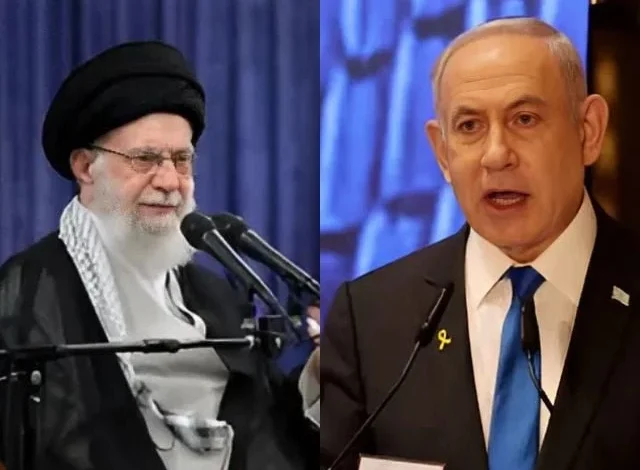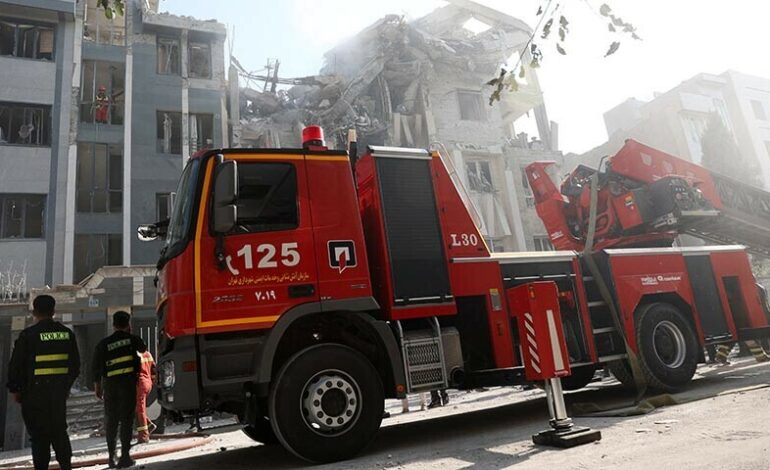
Israel Intensifies Strikes on Iran Amid Rising Tensions; Tehran Vows Retaliation
Top Iranian military leaders and nuclear scientists killed as fears of wider regional conflict grow
In a dramatic escalation of hostilities, Israel has launched a new wave of airstrikes on Iran, targeting strategic military and nuclear facilities in the cities of Tabriz and Shiraz. The coordinated assault, described by Israeli officials as a “preemptive operation,” has left at least six Iranian nuclear scientists and several senior military officials dead, with over 50 civilians reportedly injured.
The Iranian government, which has long insisted its nuclear program is for peaceful purposes, has vowed a swift and forceful retaliation.
Strikes on Key Targets
According to Iranian state media, the latest Israeli bombardment struck an airport and multiple air bases in Tabriz, while in Shiraz, a missile manufacturing site was hit. Explosions were also reported near the Natanz uranium enrichment complex — Iran’s most significant nuclear facility.
Tasnim News Agency confirmed that at least 50 people, including women and children, were injured and taken to Tehran’s Chamran Hospital following the strikes. Meanwhile, reports from the Islamic Republic News Agency (IRNA) suggest that Major General Hossein Salami, the commander of Iran’s Islamic Revolutionary Guard Corps (IRGC), was among those killed when the force’s headquarters in Tehran was targeted.
Iran Vows Retaliation
Supreme Leader Ayatollah Ali Khamenei strongly condemned the Israeli strikes, promising severe consequences. “Israel has committed a wicked and bloody crime against Iran,” Khamenei said. “A bitter fate awaits them. The blood of our martyrs will not be shed in vain.”
Khamenei added that the victims’ work would be carried forward and that Iran’s armed forces had been instructed to prepare for an appropriate and decisive response.
Israel’s Operation “Rising Lion”
In a recorded statement, Israeli Prime Minister Benjamin Netanyahu confirmed the launch of Operation Rising Lion, which he described as a “targeted military campaign to eliminate the Iranian threat to our survival.” He stated the operation would continue for as long as necessary.
An Israeli military official claimed the country had struck “dozens” of sites, including nuclear facilities, weapons factories, and military installations. The official further alleged that Iran had accumulated enough enriched uranium to produce 15 nuclear warheads “within days.”
Covert Sabotage and International Ramifications
Citing Israeli sources, Axios reported that Israel’s intelligence agency Mossad had also led sabotage missions deep within Iran, targeting missile systems and air defense networks. Although the Atomic Energy Organization of Iran (AEOI) acknowledged damage to parts of its Shahid Ahmadi Roshan nuclear complex, it denied reports of fatalities at the facility.
Amid the military escalation, Iran’s top nuclear scientists, including Fereydoun Abbasi and Mohammad Mehdi Tehranchi, were reported killed in targeted strikes in Tehran, though Iranian authorities have offered conflicting statements regarding their deaths.
U.S. Distances Itself
While some reports suggested coordination between Washington and Tel Aviv, U.S. officials have publicly denied involvement in the strikes. “We were not part of the Israeli operation,” said Secretary of State Marco Rubio. “Our priority remains the protection of American personnel in the region.”
The White House announced that President Donald Trump would convene a National Security Council meeting to assess the situation. Meanwhile, U.S. embassies in the region have instructed staff and citizens to shelter in place.
Global Fallout
The attacks have drawn widespread international attention and concern. Israeli airspace, along with Iranian, Iraqi, and Jordanian skies, was largely closed to commercial flights following the strikes, according to data from Flightradar24. Israel’s Ben Gurion Airport was shut down, and flag carrier El Al suspended operations.
Oil prices surged and stock markets dipped sharply in early trading on Friday amid fears of broader conflict in the Middle East, a critical energy-producing region.
A Stalemate in Diplomacy
Scheduled nuclear talks between the United States and Iran in Oman now appear to be deadlocked. Despite intelligence assessments indicating Iran is not actively building a nuclear weapon, Israeli officials maintain that Tehran’s intentions are hostile and must be countered militarily.
Meanwhile, Iranian leaders have accused Washington of complicity in the attacks and warned that both Israel and the United States would “pay a heavy price.”
A Region on Edge
With thousands of Israeli troops mobilized and Iran promising retaliation, fears are growing of a wider regional conflict. Israeli Defense Minister Israel Katz warned of potential drone and missile attacks against Israeli cities, stating, “We are prepared for any eventuality.”
As the region braces for the fallout, global leaders have urged restraint. However, with both sides entrenched and rhetoric escalating, the possibility of a broader military confrontation looms large.






